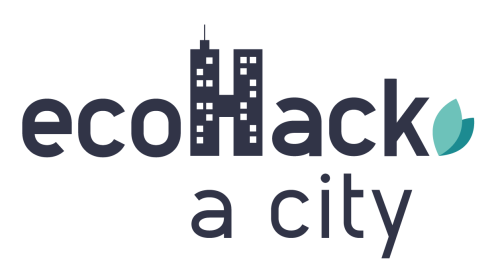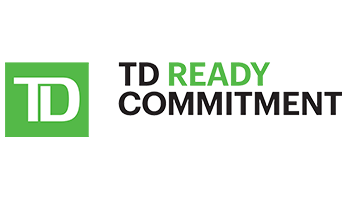MONCTON (NEW BRUNSWICK) – APRIL 29, 2021
Building energy demands, especially heating and cooling make up about 25% of Canada’s energy consumption. Improving the efficiency of buildings and energy systems presents some challenges that if overcome, could help cities reduce their dependence on fossil fuels and reduce GHG emissions.
PUBLIC PANEL EVENT OUTCOMES
The public panel was held on April 29th 2021 and focused on exploring small-scale green energy solutions. To that effect, stakeholders in the business and not-for-profit sectors were invited to discuss the topic. The discussions revolved around the current and future states of the housing market and pioneer projects starting a transition towards small-scale green energy solutions.
According to Donna Ferguson, Owner of SheBuilds (New Brunswick), the housing market is currently governed by comfort and space. It is what prospective homeowners and renters are focused on. Initiating a change to bring green energy solutions to the centre of attention is a challenging task. As it took time and effort to start seeing progress towards sustainability in other areas – Water and Energy Conservation, the same can be expected for greener energy solutions. Regardless, evolving building codes and initiatives promoting better insulation and a smarter usage of the space as well as incentives such as the CMHC Green Home Program already exist to help individuals and organisations take that step towards greener energy solutions.
When it comes to public-owned buildings, Joël Olivier, Director of Services to the members of the Association francophone des municipalités du Nouveau-Brunswick, shared a pilot project in which they measured the greenhouse gas emissions and found out that more than a third of the emissions came from buildings. In publicly-owned buildings, just as in privately-owned buildings, the transition to greener energy is the next step. For the pilot project, the implementation of energy efficiency measures combined to the use of biomass by-products as energy substitute would help reduce GHG emissions by 66%. The project is currently in its post implementation phase and data is being collected. This phase will be ongoing until 2022.
With his expertise in several cross-section initiatives, the third speaker, Scott Skinner, CEO of Clean Foundation in Nova Scotia, was an asset during the panel conversation to add to the three presentations and help provide a more comprehensive overview of small-scale green energy solutions.
POTENTIAL SOLUTIONS
For this event, one challenge was defined by the City of Moncton for participants to work on during the Design Thinking training: how to reduce greenhouse gas emissions from fossil fuels used in residential buildings. At the end of the training, the groups’ findings clearly pointed at education as the main lever to have an impact on the challenge, so that citizens, local businesses and the municipality could then implement impactful actions.
How to reduce greenhouse gas emissions from fossil fuels used in residential buildings
A big deterrent to education is that the information is not easily accessible, sometimes scattered across several websites. A consolidation work needs to be undertaken, with the help of the Climate Action Working Group of the City of Moncton, to create a database of resources listing funding opportunities and key players in the industry for example. Presenting information to the public in a concise way, under the form of a guide on net-zero buildings, is also key. Hosting this information on a unique website or on a clearly identified section of the City of Moncton’s website will make it more enticing to individuals and actors of the housing industry to learn about other ways to consume or provide energy in residential buildings.
Leveraging networks, through real estate influencers and other local stakeholders, will provide additional support to educating the public. Conferences introducing the transition of the residential building sector to be more energy efficient and born out of the mobilization and collaboration of local organisations will also have some powerful impact. Finally, the relay of information through educational booths at festivals like the Festival Inspire is a great opportunity to reach a significant number of individuals. All these initiatives will help foster the ideas presented in Moncton’s Community Energy & Emissions Plan, a guide to Moncton’s energy future to ensure that its GHG emissions are sufficiently reduced, and which should be highlighted further.
While education and informing individuals about existing programs to transition to more energy efficient buildings are the paths to follow for a high impact on the citizens and organizations of Moncton, another one, maybe just as relevant, also needs to be explored. Citizens are also customers and providing services promoting the transition away from fossil fuels would have environmental as well as economic benefits for society through jobs creation.
To go further, click here to view the training materials.
ABOUT THE ECOHACK-A-CITY SERIES
Municipalities are in a unique position to make real strides in the fight for a more sustainable future. The EcoHack-a-city initiative is designed to strengthen the ties among stakeholders who can support this ecological transition!
To discover the next themes addressed in the EcoHack-a-city public panel events, click here.
To participate in an EcoHack-a-city training, click here.
Contact us
Earth Day Canada
5818, boulevard Saint-Laurent
Montréal (Québec) H2T 1T3 Canada
Phone : (514) 728-0116
Toll free : 1 800 424-8758
Fax : (514) 303-0248
Email: hello@earthday.ca
2026 © Earth Day Canada. All rights reserved.
Privacy policy · Terms of use · Trademark






